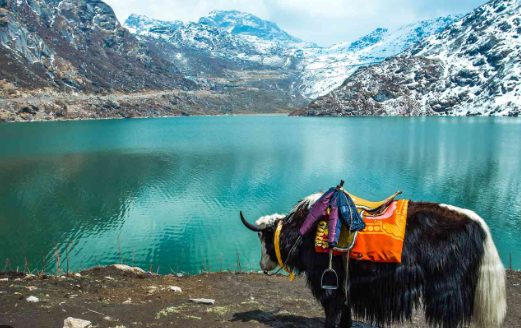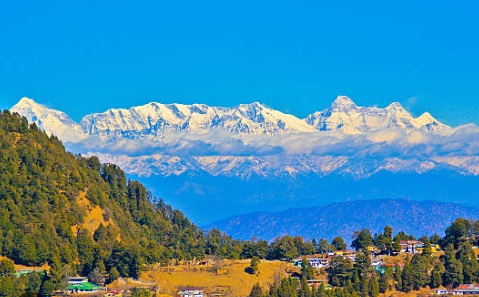Sikkim is a state located in the northeastern part of India, and is bordered by Bhutan, Tibet, and Nepal. The state is known for its breathtaking landscapes, rich culture, and vibrant traditions. Sikkim was an independent kingdom until it became a part of India in 1975. Since then, the state has emerged as a popular tourist destination and has attracted people from all over the world.
One of the most striking features of Sikkim is its stunning natural beauty. The state is home to the majestic Himalayas, which dominate the skyline and offer spectacular views of snow-capped peaks, lush valleys, and glistening rivers. The state is also known for its diverse flora and fauna, with several national parks and wildlife sanctuaries showcasing a wide range of rare and endangered species.
The people of Sikkim are a mix of various ethnicities and cultures, with the major ethnic groups being the Lepchas, Bhutias, and Nepalis. The state’s cultural diversity is reflected in its festivals, music, and dance. The state celebrates several festivals throughout the year, including Losar, the Tibetan New Year, and the famous Bumchu festival, which is held at the Tashiding Monastery and attracts pilgrims from all over the state.
Sikkim’s cuisine is a delightful blend of Tibetan, Nepali, and Indian flavors, with the use of local herbs and spices adding an interesting twist to the dishes. The state is known for its momos, which are steamed dumplings filled with meat or vegetables, and the popular Thukpa, a hearty noodle soup. The state is also home to several unique drinks like Tongba, a millet-based drink, and Chhang, a fermented drink made from rice or barley.
Sikkim is also known for its rich history and heritage, which is reflected in its numerous monasteries and other historical sites. The state’s capital, Gangtok, is home to several monasteries like the Rumtek Monastery, which is the largest in Sikkim and is known for its intricate murals and carvings. The state is also home to the famous Nathu La pass, which is a high-altitude mountain pass that connects Sikkim with Tibet.
Tourism is an important industry in Sikkim, and the state offers a wide range of activities for visitors. Adventure enthusiasts can indulge in trekking, mountaineering, and river rafting, while nature lovers can explore the state’s scenic beauty and wildlife. The state also offers several spiritual and wellness retreats, which provide visitors with an opportunity to experience the state’s rich culture and traditional healing practices.
Sikkim is a state that has managed to preserve its natural and cultural heritage while embracing modernity. The state’s efforts towards sustainable tourism and conservation have earned it several accolades, including the prestigious Future Policy Gold Award for its pioneering role in implementing eco-tourism practices. The state’s commitment to preserving its environment and culture has made it a role model for other regions and a testament to the power of responsible tourism.
In conclusion, Sikkim is a state that is rich in culture, history, and natural beauty. Its diverse ethnic groups, festivals, and cuisine make it a melting pot of traditions and flavors, while its stunning landscapes and wildlife offer visitors a chance to connect with nature. Sikkim’s commitment to sustainable tourism and conservation has earned it a reputation as a responsible and progressive destination. Sikkim truly offers a unique and unforgettable experience that cannot be found anywhere else in the world.









